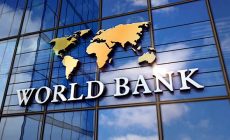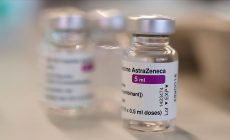Developing countries get $12bn World Bank support for COVID-19 vaccines
- Posted on
- Comment

The executive board of the World Bank has approved $12bn in new funding for developing countries to finance the purchase and distribution of Covid-19 vaccines, tests, and treatments for their citizens.
The financing plan is part of a $160bn in total resources that the multilateral development lender has pledged to provide to developing countries through June 2021 to help fight the coronavirus pandemic.
The World Bank said the financing programme will also include technical support to recipient countries so they can prepare for deploying vaccines at scale.
It is also to signal to drug companies that there will be strong demand and ample financing for Covid-19 vaccines in developing countries.
‘This financing package helps signal to the research and pharmaceutical industry that citizens in developing countries also need access to safe and effective Covid-19 vaccines,’ the bank said in a statement.
‘It will also provide financing and technical support so that developing countries can prepare for deploying vaccines at scale, in coordination with international partners.’
Access to safe and effective vaccines ‘and strengthened delivery systems is key to alter the course of the pandemic and help countries experiencing catastrophic economic and fiscal impacts move toward a resilient recovery,’ World Bank Group President David Malpass said in the statement.
The financing ‘will also support countries to expand immunisation capacity to help health systems deploy the vaccines effectively,’ the statement added.
The financing approval was expected as Mr Malpass had announced the project in late September.
While vaccines are yet to appear on the market, Mr. Malpass noted in an interview with the French daily Le Figaro that it was necessary to prepare because of the complicated vaccine distribution process.
The Bank’s approach, according to the statement, draws on its ‘significant expertise in supporting large scale immunisation programs for vaccine-preventable diseases, as well as public health programs to tackle infectious diseases such as HIV, tuberculosis, malaria and neglected tropical diseases.’
By Jamila Akweley Okertchiri










 (Selorm) |
(Selorm) |  (Nana Kwesi)
(Nana Kwesi)